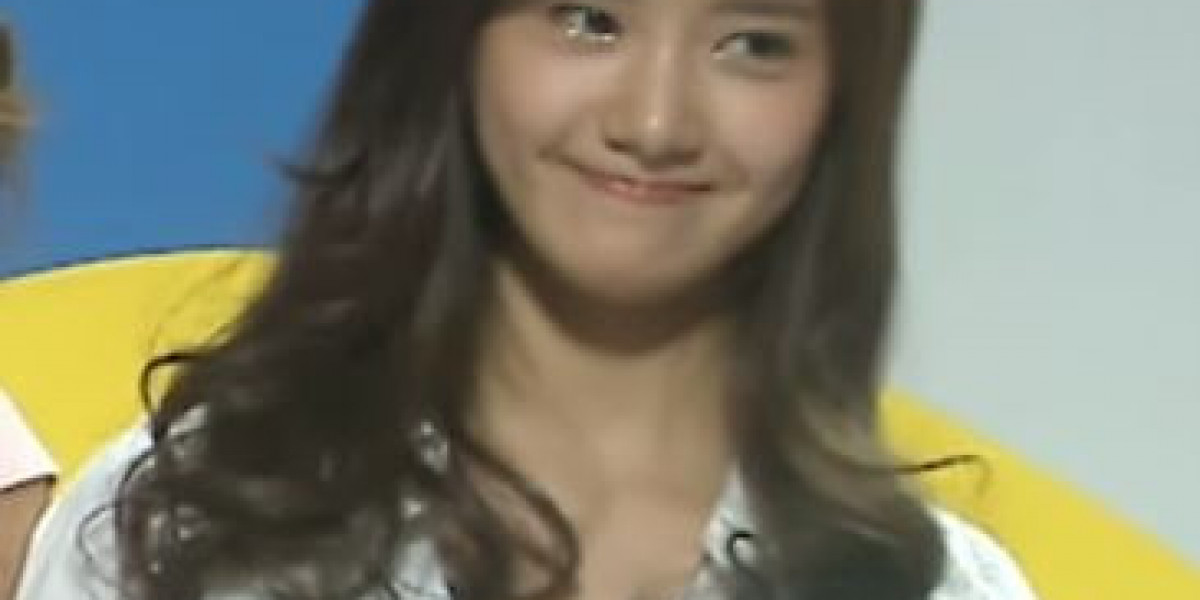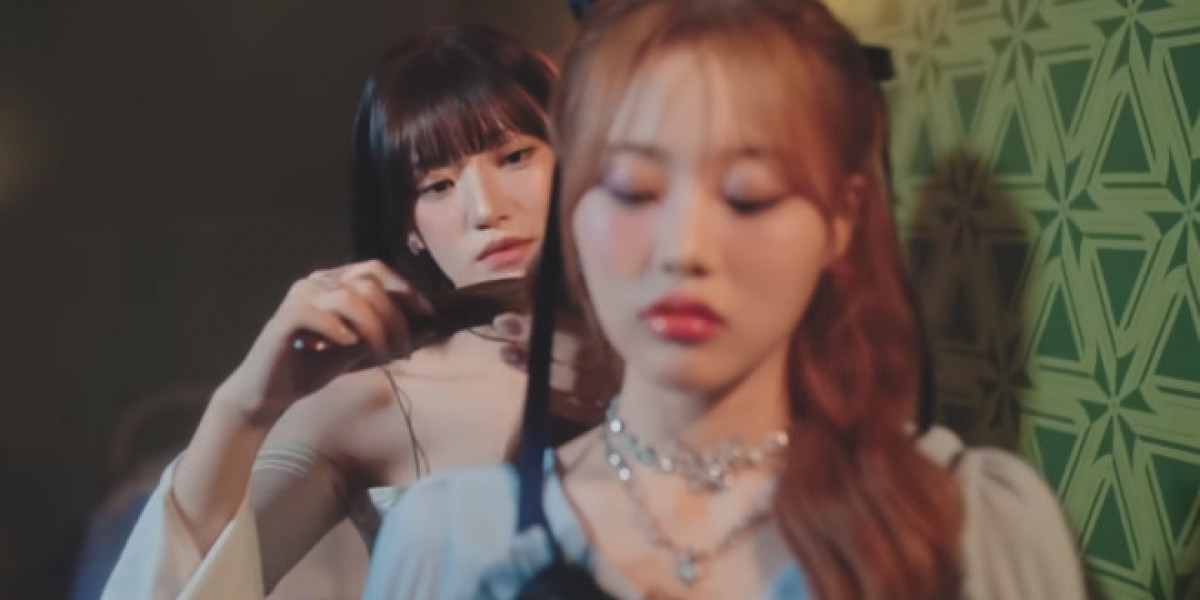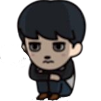
The graduation system is not a foreign concept to most people familiar with Japanese idols, as many popular idol groups, especially female idols such as AKB48 or Morning Musume's various incarnations, have heavily employed the system as a part of their group concept. However, when it comes to K-pop, the various prominent idol groups that included the concept of graduation, have either disbanded or re-formed into groups with fixed permanent line-ups. Most of the time, this concept was created as an excuse for management failures, as seen in the case of 9MUSES and their management STAR EMPIRE. However, there were often cases of idol groups specifically crafted to promote under this concept. This can often be seen in many of SM Entertainment's groups throughout the years.
Super Junior '05
The earliest concept of a graduation system within the Korean idol industry reportedly began with h.o.t during the 1990s. There were discussions regarding whether the group should have a graduation system. However, the group was so immensely popular, that the company ultimately decided to debut the group with a fixed line-up. Throughout the years, SM has tried multiple times to create a group that has the concept of graduation at its core but has failed time and time again. This can be seen in two of their post-2000 boy groups: SUPER JUNIOR NCT.
SUPER JUNIOR are now considered veterans within the current idol industry. However, SM's initial plan for the group was to create a supergroup that would function similarly to Japan's Morning Musume. Within this format, various group members would be added and graduate at the behest of the agency (or members themselves). Through this concept — in an attempt to keep the group fresh and constantly active — the company would consistently add new trainees to the group.
Through this concept, the company would not need to worry about military enlistments, or — to a lesser extent — the personal lives of the group members. As they would be far more disposable than members within groups with a fixed line-up. The company could just decide to force the graduation of a member if a controversy were to arise, and the group could continue group activities even with some of its members undertaking military service duties.
Through their initial group concept, if SUPER JUNIOR '05 were to continue adding members, they would have enough members to continue without a few of the members. Their initial aim for the group was to have group members be active throughout all sectors of the South Korean entertainment industry. This can be seen in the way that the company often pushed the members of SUPER JUNIOR into individual activities such as radio television hosting, as well as acting far more than many of their future hoobae groups. However, SUPER JUNIOR — just like h.o.t before them — had proven to be too popular for their own good. As they would become a fixed unit following the addition of Kyuhyun in 2006.
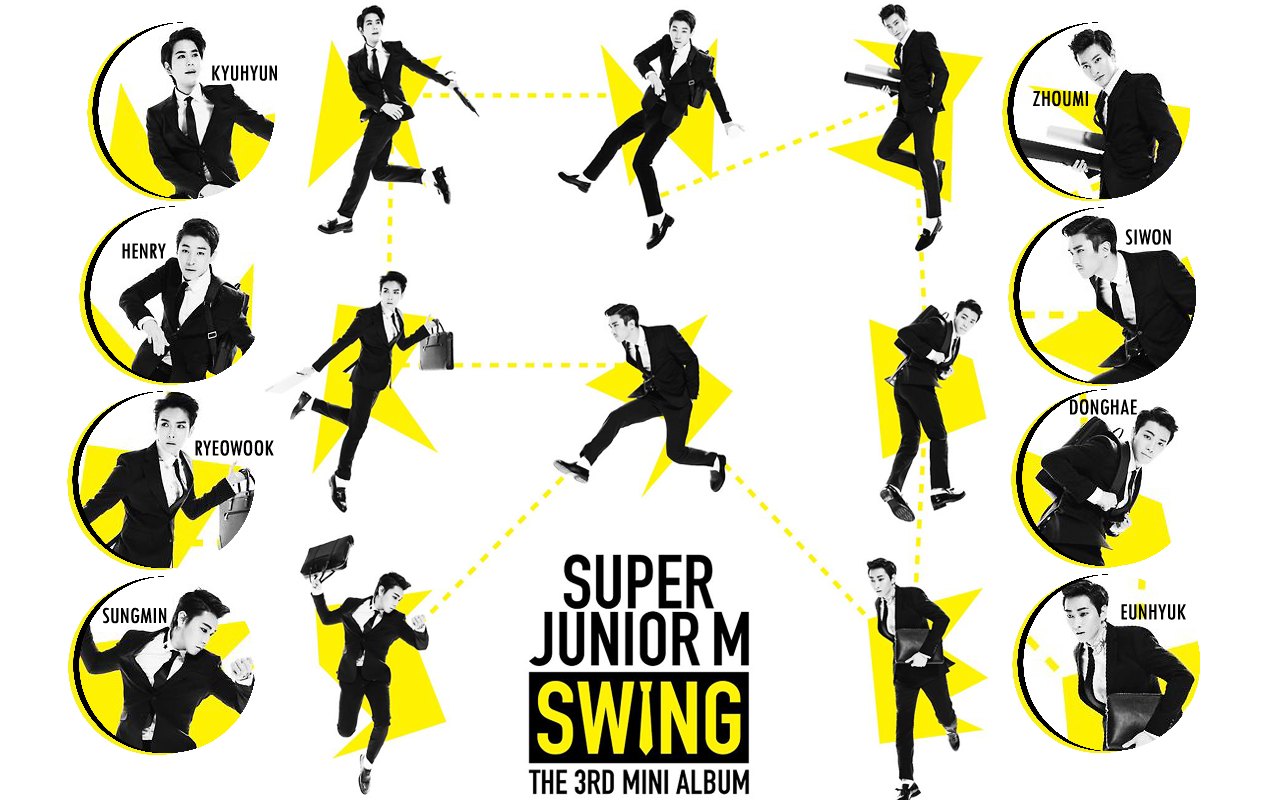
SUPER JUNIOR-M concept photos for their 3rd mini-album, SWING
Then, in 2007, SM was seeking to add two more members to the group, Henry, a Taiwanese-Canadian, who had been featured in the music video for their latest track, 'Don't Don' Zhou Mi, from mainland China. However, unlike Kyuhyun, who had seemingly been added to the group with very little protest, the protests for the two foreign pre-debut members did not seem to die down. Instead, the 'Only13' movement was created. Through this protest movement, fans purchased shares within SM Entertainment to put pressure on the company and keep the two foreign members out of the group. As a result, the company finally caved to the fans' demands and instead added Zhou Mi Henry exclusively to the group's Chinese sub-group, SUPER JUNIOR M. This would effectively place the two idols in limbo for each of their respective careers as part of the group up until their respective solo debuts starting from around 2014.
SUPER JUNIOR would go on an effective military-induced hiatus from around 2011 up until 2014 as the members each sought to complete their mandatory military service. The two SUPER JUNIOR-M members would be caught in the crosshairs as the main group, — along with SUPER JUNIOR-M — would be unable to promote until each of the Korean members had completed their service. During this, Eunhyuk, who was both a member of SUPER JUNIOR-M was the acting representative of SUPER JUNIOR member at the time, was forced to re-iterate that Henry and Zhou Mi would not be added to the main SUPER JUNIOR group, but would stay as exclusive members of SUPER JUNIOR-M instead.
To make matters worse, in 2011, Han Geng, the leader of SUPER JUNIOR-M at the time had officially filed an injunction for the suspension of his exclusive contract with SM after years of mistreatment, yet again adding more stress onto the group's already rocky career and, potentially, adding to the Xenophobia experienced by the two remaining foreign members. The group's last official comeback was in 2014 with their 3rd EP, Swing which would also be the last time Henry would promote as a member of SUPER JUNIOR-M. As of 2023, SUPER JUNIOR has officially promoted themselves as a 9-member group. Thus, showing that the Only13 movement had almost no ground to stand on in the first place. Kibum Han Geng have not been members of the group 2009, Kangin left the group — and the Entertainment Industry — following his 3rd DUI, while Sungmin has not actively promoted with SUPER JUNIOR since 2015, after facing backlash from his marriage.
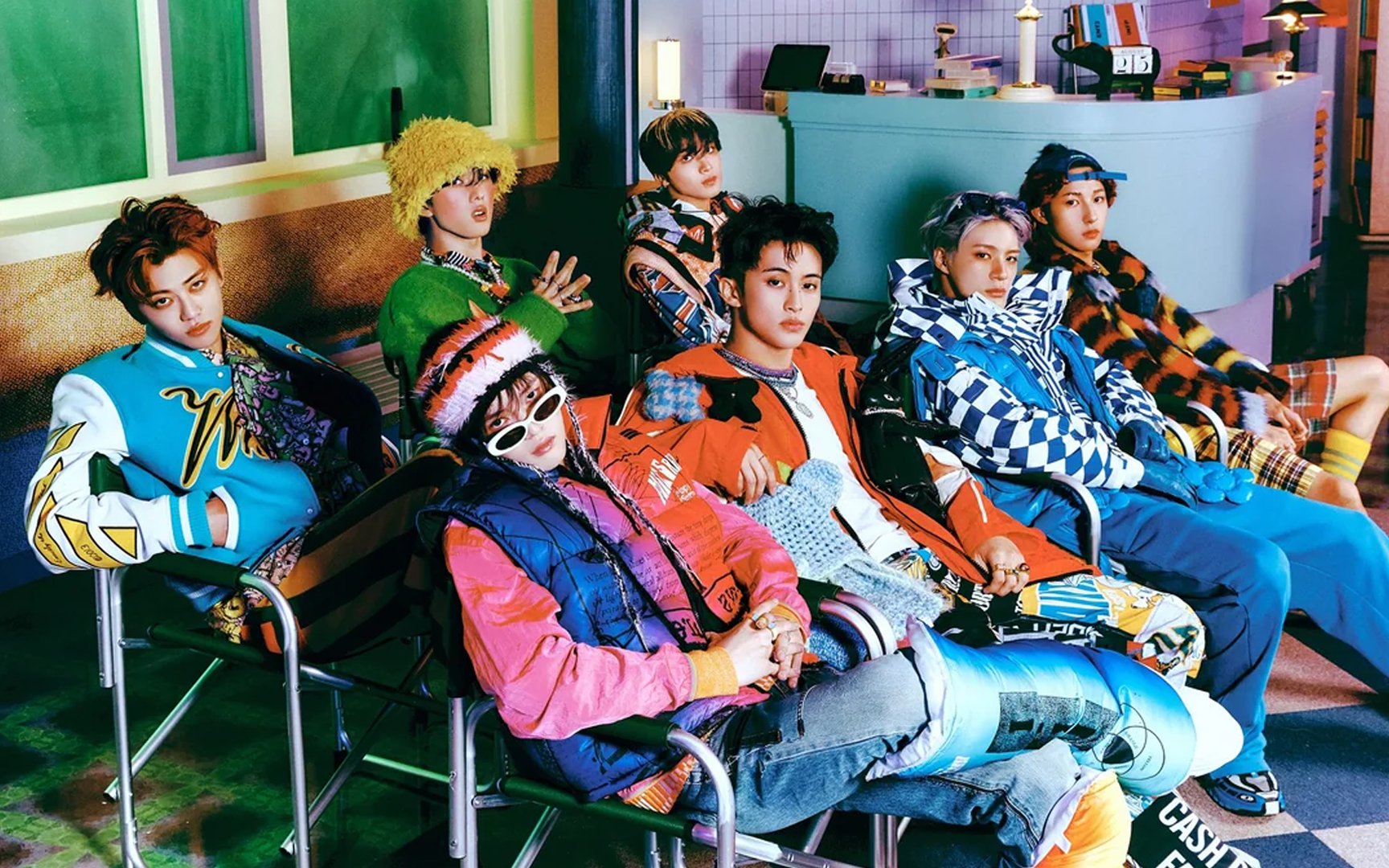
The most recent attempt at a graduation concept by SM Entertainment was through the creation of NCT Dream in 2016. This group was established as the third official sub-unit of NCT. Which began as SM Entertainment's first official rotational group. Where group members would debut into multiple different sub-units. NCT Dream was one such sub-unit. This group would function similarly to that of Sakura Gakuin. Where the younger members of the wider NCT supergroup would promote as members of NCT Dream up until a certain age. In NCT Dream's case, they would graduate following their coming-of-age (19 years old). Following this, the members would 'graduate' from the group and be transferred into other groups within the NCT brand.
This concept, however, would prove to be too traumatic for the group members and SM would rescind the concept of graduation in 2020, two years after Mark's initial departure in 2018. Following this, NCT Dream would then become a fixed unit and Mark would re-join NCT Dream. In NCT Dream's case, the decision by SM Entertainment to make the group a fixed unit had both positive and negative effects on the overall career trajectory of some of its members. In the case of Mark and Jaemin, it resulted in the two being committed to two — or in the case of Mark, three — separate groups: NCT Dream, as well as NCT127; which also meant that they would have to do twice the work than any other NCT member. Even Winwin, who was an initial NCT127 member, would eventually unofficially leave the group following the decision to add the idol to the NCT-associated Chinese boy group, WayV.
This change, however, did help to prevent the deterioration of the mental health of the group members from what they consider to be a 'traumatic' group concept. As they had grown close to one another while promoting under the label of NCT Dream. The term 'graduation' would eventually become a word that the members had begun to associate with dread.
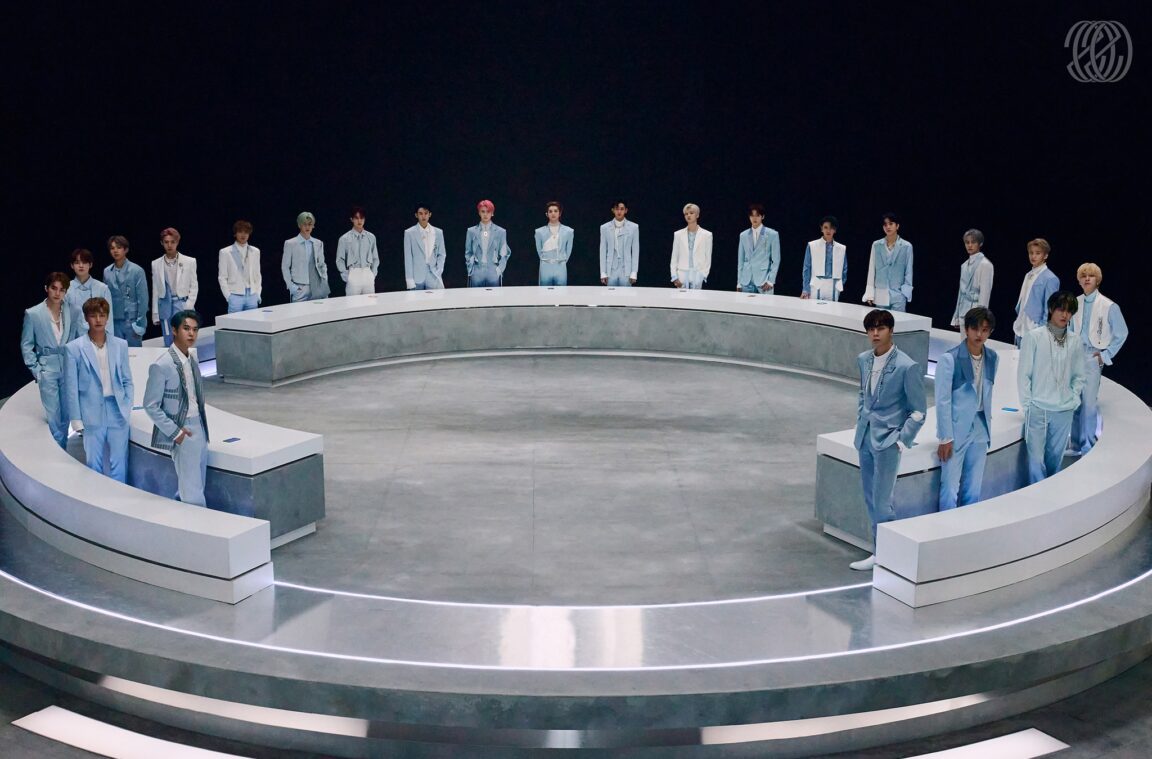
NCT2020 concept images for RESONANCE PART 1
SM has been trying to form a successful group with the graduation concept for almost 30 years. However, they have yet to accomplish this goal and have seemingly given up on this concept for — at least — the near future. They have instead worked towards establishing groups with closely aligning concepts such as rotational groups. This can be seen in the case of NCT, where SM was still able to create a supergroup, but with fixed units rather than an ever-rotating roster. This was further established through the company's decision to officially end the expansion of NCT with their 6th and final group, NCT Tokyo in 2023.
It can be seen through these examples, that while SM Entertainment — or rather, their former CEO, Lee Soo-man — has always danced around the idea of debuting a full graduational group, they have been unsuccessful in their aims to establish one. The K-pop-consuming culture within South Korea just does not seem to be very receptive to the concept, despite their penchant for solo-stanning. Even NCT, which is the closest thing that SM has to a graduational group right now, will officially be ending their infinite expansion in 2024 with the debut of its final sub-group, NCT Wish. Despite this, it can be concluded that, while we may not see a mainstream graduational concept within the Kpop industry anytime soon, there is some hope for the future for groups to debut under alternative concepts parallel to this. NCT's rotational group system, or the system of debuting temporary groups as seen from Produce101 can be seen as a viable alternative.
